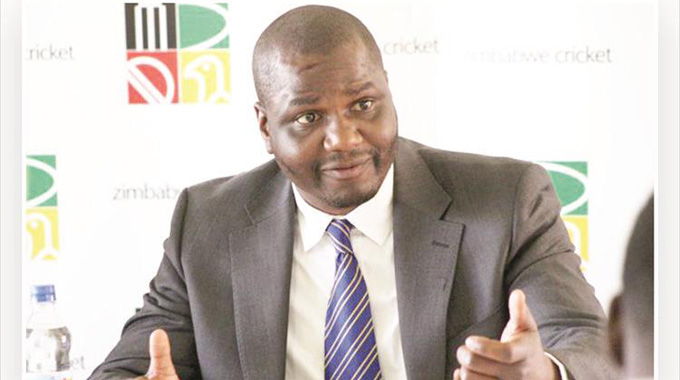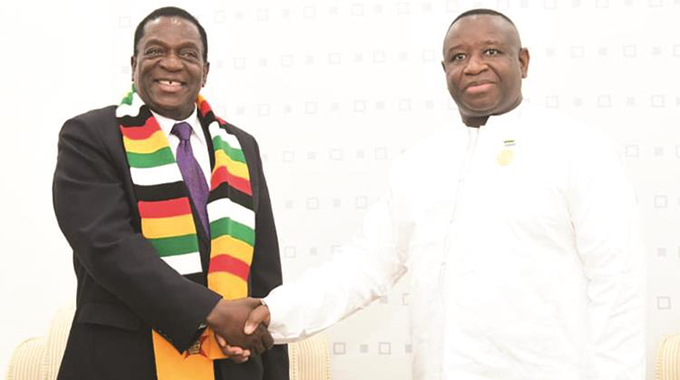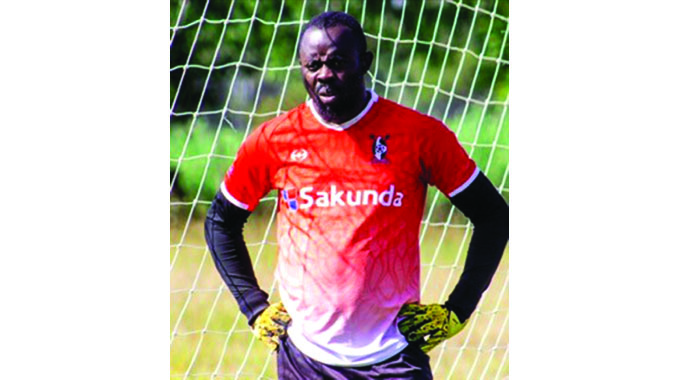Dublin disaster averted as Zim Cricket survive

Robson Sharuko Senior Sports Editor
ZIMBABWE has survived the threat of suspension from the International Cricket Council, in a massive boardroom victory for the country’s second biggest sporting franchise, with the game’s world leadership instead choosing to throw their full weight behind the revival of the domestic sport.
The country was facing the grim possibility of being put on notice for suspension from the ICC in Dublin, Ireland, at the weekend — a move which would have turned off the taps that have been providing the game with its critical financial support — paralysing the sport here and plunging it into darkness.
In the event of suspension, the $94 million from the ICC, which Zimbabwe expects over the next eight years, would have been whittled down to just about $8 million, over the same number of years, because the country would have lost its place among the Full Members.
But the threat of suspension was averted after a ZC delegation, led by chairman Tavengwa Mukhuhani and consultant Vince van der Bijl, successfully fought the cocktail of sanctions and even received fresh commitment from the ICC leaders for a helping hand in the revival of the game in this country.
The ICC will now send a delegation to help ZC find a way out of the challenges that have been haunting them for some time now and the resolutions from the indaba in Dublin also, crucially, provide the domestic game with the big financial injection which it has been crying for to pay off what is owed to their players and staff by the end of this month.
A stand-off over funds owed to key players has resulted in some of them missing the current Twenty20 International Tri-Series, which also features Pakistan, the number one ranked Twenty20 team in the world, and Australia, who are ranked third.
The ICC wanted local cricket leaders to provide them with a guarantee that the multi-million-dollar debt, which stands at around $19 million, owed to local banks will get a 30 percent discount on the principal amount with the world governing body also providing a similar haircut on the $6 million which ZC owe them.
The $19 million debt has been housed under the Zimbabwe Asset Management Corporation, who provided Mukuhlani and his delegation a guarantee that the domestic debt would get a 30 percent discount on the principal amount, which was a key requirement for the suspension to be averted.
The interest rate on the debt, which has been housed under ZAMCO, would then be frozen at 6.5 percent until 2023, and the ICC will then make a one-off payment to ZAMCO by 2023, for the dissolution of the ZC loan on their shelves with this leaving ZC without debt and with breathing space for their operations.
The ICC believe this is the best possible debt resolution strategy — over an eight-year period — which will not only ultimately end with Zimbabwe cricket being freed from its bondage of debt but will also ensure that the funds which are pumped into the domestic game will end servicing the sport rather than servicing the debts.
The ICC believed that any other option would have been inadequate to deal with the debt baggage and this would have forced them to suspend Zimbabwe from their family of nations.
Youth, Sport, Arts and Culture Minister, Kazembe Kazembe, had written a letter to the ICC advising them his Ministry was in the process of reviewing how the ZC debt came to balloon to those levels but the world cricket leaders felt what was important, at this stage, was whether they could structure a deal to rescue Zimbabwe Cricket.
Or, in the event they couldn’t do that, suspend the country from their membership.
Van der Bijl, the South African cricket legend who was roped into the ZC structures as a consultant, played a very key role — behind the scenes — using his vast network of contacts among the top ICC leaders to get their support to avert the crisis that could have been sparked by the country’s suspension and the switching off of the financial aid.
Former ZC managing director, Faisal Hasnain, who once worked as the ICC chief financial officer, also played a key role in the background, to ensure the suspension of the country’s membership from the world cricket body was averted, despite having left his role with the domestic cricket leadership.
The process to put Zimbabwe on the notice for possible suspension could have been effected in April this year but it was put on hold because the ZC leadership did not attend that meeting to put forward their defence.
There were reports that the country had even lost the support of some of its traditional backers, including the Asian heavyweights, who normally fight in the corner of this nation.
ICC chairman Shashank Manohar confirmed in a statement late last night that everything was now in order.
“I am satisfied we have mapped out a way forward to enable Zimbabwe Cricket to get back on track,’’ he said.
‘‘It will require significant change to their financial, managerial and cricketing operations, along with support from the ICC, but we saw the latent potential of cricket at the recent ICC Cricket World Cup Qualifier in Zimbabwe and this gives us the opportunity to build on that.’’
The Herald can also today provide the details that led to the threat of suspension being averted in Dublin at the ICC Annual Meeting at the weekend. ‘’The F&CA (Finance and Commercial Affairs) noted that, subsequent to the preparations of the Board paper, Zimbabwe Cricket has provided communication of a 30 percent discount on the principal value of the loan to be repaid to ZAMCO,’’ official documents seen by this newspaper reveal.
‘’This, therefore, put Zimbabwe Cricket in the position of having secured full compliance with the three conditions set by the ICC Board.
‘’In such circumstances, the F&CA agreed to recommend the following measures to address ZC’s current situation:
- US$20 million of Zimbabwe Cricket’s anticipated distribution of ICC surplus to be withheld by the ICC to cover Zimbabwe Cricket’s debts (comprising (a) US$10 million owed to ZAMCO; (b) US$3 million owed to the ICC and (c) accrued interest on both (a) and (b).
- The US$20 million would be used (a) to pay those debts plus interest at the end of the rights cycle in accordance with the terms agreed with ZAMCO and the ICC and (b) to cover any costs of the OCC (and its management team) in putting together and overseeing a detailed plan for how Zimbabwe Cricket should manage its cricketing, management and financial structures.
- Any remaining balance of that sum after those payments would be paid to Zimbabwe Cricket.
Therefore, the distribution of ICC surplus that would actually be payable to Zimbabwe Cricket during the current rights cycle would be US$73 million. - As a condition of the above arrangement, Zimbabwe Cricket is required to submit its audited accounts to the ICC, following which appropriate levels of distribution can start to be paid.
- As a condition of the above arrangement, the payment of ICC distributions would be made every six months to Zimbabwe Cricket on a “controlled funding,” basis (i.e. with processes in place that enabled the ICC to oversee and approve all payments.
- Ahead of the October Board meeting, Mr (David) Richardson (ICC chief executive) and Mr (Ankur) Khanna (ICC chief finance officer) to meet with Zimbabwe Cricket and to develop a detailed plan for how Zimbabwe Cricket should manage its cricketing, management and financial structures, for approval. Zimbabwe Cricket’s progress against that plan will be reviewed regularly by Mr Richardson and Mr Khanna.’’
The axe was hanging over Zimbabwe going into the ICC Annual Conference in Dublin at the weekend where there was a possibility the country would be hit with the following:
- Suspension from the ICC family of nations, including but not limited to, the eventual loss of its membership of the exclusive group of 12 ICC Full members, and the huge financial rewards, which come with such a status.
- On re-admission, in the event that the issues had been resolved to the satisfaction of the ICC family, Zimbabwe will have to start from the very bottom, in terms of rankings, about 105 in the world, in a game in which the country is ranked among the 12 top nations.
- There could have been a considerable flight of both the playing personnel and related technical staff, during that period in which the game would be bleeding in the darkness, from the country in search of better pastures elsewhere and this could severely cripple the sport which has established itself as the second most popular discipline after football in the country.
Facilities, in Harare, Bulawayo and Kwekwe, which were renovated recently at a cost of millions of dollars for the 2018 ICC Cricket World Cup Qualifier, will also be left as empty shells because the country will not have the top-flight matches which can be played there.








Comments